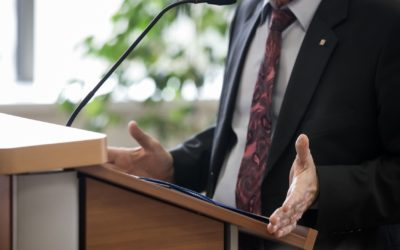#164 © Copyright 2004, all rights reserved worldwide Gambling and the Law® is a registered trademark of Professor I Nelson Rose, Whittier Law School, Costa Mesa, CA
An unsolvable problem has reemerged in Washington State: How to let privately-owned cardclubs and tribal casinos compete as equals. Whichever side is asking for more always argues that all it wants is “a level playing field.”
There is no solution, because cardclubs and tribal casinos are located in different legal and economic worlds.
Privately owned clubs came first. They were small, no more than five tables, and limited to non-banking card games, like poker, with low stakes. But they survived because they were usually located in the hearts of cities.
Tribal gaming exploded in the 1990s, starting with high stakes bingo and poker. But the tribes’ gaming operations were usually quite a ways from centers of population. Then the state signed compacts allowing tribes to have true casinos, although lacking slot machines, with house-banked blackjack, roulette, craps and 19 other named games, besides “any other table game authorized for play in Nevada.”
Cardclubs began to fail: There were 113 in 1994, three years later there were only 86.
The clubs demanded a level playing field. Although lawmakers would not let them have slot machines, they did begin relaxing their restrictions. First, the Washington State Gambling Commission, which has the sole power to determine how much players may bet, raised the maximum wager from $10 to $25. The Legislature then expanded the number of tables allowed from five to 15.
But tribal casinos expanded; starting with 32 tables, with $250 maximum bets, casinos grew to 52 tables, with wagers up to $500.
Cardroom revenue continued to decrease. The political problem for the state was that the clubs not only create jobs, they are heavily taxed, with the revenue going to cash-starved local governments.
The only form of gambling which can compete against a casino is another casino. The Legislature bit the bullet and allowed the struggling cardclubs to become mini-casinos, with up to 15 house-banked blackjack tables.
Tribal casinos, offering the same games, but in remote locations, knew they needed something more to level the playing field. They soon got what they wanted in a major way from the state.
Under federal law, tribes have the right to offer any form of gambling permitted by state law. Tribes argued successfully in court and in their negotiations that the state itself was operating a lottery that used mechanical devices. This led to compacts that allowed tribal casinos to have video lottery devices, practically indistinguishable from slot machines.
It was now the cardclubs’ turn to ask for a level playing field. The Gambling Commission responded by raising the betting limit to $100. But that was not enough to save all the clubs.
The cardclubs’ Recreational Gaming Association asked the Gambling Commission to raise the maximum bet to $300.
Opposition arose from the anti’s, especially Citizens against Gambling Expansion, led by former Gov. Booth Gardner and King County Prosecutor Norm Maleng, and, of course, from Indian casinos.
The Gambling Commission feels it is bound by the state’s supposed policy against the expansion of gambling. But regulators understand that their duty is also not to let the industry they regulate go bankrupt.
So, after discussing it at five separate meetings, the Commission decided on a compromise: The new limit is $200, but cardrooms are greatly limited in how many of these higher-stake tables they may have. Clubs with five or fewer tables can designate only one; those with six to ten tables can have two and clubs with 11 to 15 tables can have three $200 max. tables.
But the cardclubs still do not have slot machines. They ask every year to have the same rights as tribes, but every year the Legislature turns them down.
So in 2004 they went directly to the voters.
I-892 would have let bars, restaurants, bowling alleys, charities, bingo halls and cardrooms have exactly the same gaming devices as tribes. Proponents spent more than $1 million on the campaign.
But tribes poured in more than $5 million in opposition. They knew they would have trouble competing with 18,225 near-slots in clubs closer to the state’s cities.
On November 2, 2004, I-892 lost 47% to 53% – a narrow loss for a gaming proposal, but a lose nonetheless. The cardclubs will undoubtedly try again.
The cardclubs say they need a level playing field, meaning slot machines, to survive. The tribes say they need a level playing field, meaning either land in cities or a monopoly on gaming devices, to survive.
So, it is a sure thing that the fight between the clubs and tribes in Washington State will continue. The tribes are probably going to win: They already have their gaming devices. This not only makes them extremely wealthy and powerful political players. It also means all they have to do is fight for the status quo.
It is much more difficult for cardclubs to win the right to bring in slot machines than it is for tribes to merely oppose any further expansion of gambling.
END
Professor I. Nelson Rose, teaches at Whittier Law School in Costa Mesa and is recognized as one of the world’s leading authorities on gambling law. His website is www.GamblingAndTheLaw.com.





0 Comments